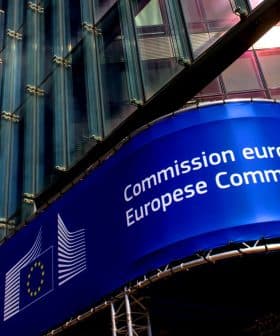European Union Olive Oil, A Legislative Reality
The EU’s upcoming action program for olive oil will focus on quality, control, restructuring, promotion, and competition with third countries, solidifying olive oil as an “EU product” with strict rules regarding standards, labeling, marketing, health claims, and environmental regulations. The shift of control over olive oil regulation from Mediterranean member states to Brussels is driven by scandals, competition from new world producers, and the need to maintain European olive oil’s position in the global market, with Brussels increasingly using regulations to assert its authority in this area.

When the first EU action program for olive oil comes out at the end of September, it is unlikely to derogate from the drafts that have been circulating since mid-summer. These drafts indicate the plan will focus on quality and control, restructuring of the sector, promotion and competition with third countries.
It will also seal the fact that olive oil is becoming an “EU product” backed by Brussels not only through producer support system (especially payments to farmers, and grants for storage of surplus) but also through iron-clad rules regarding standards, labeling, marketing, health and nutritional claims and environmental rules.
The EU speaks through law, and as such, the baton has passed from Mediterranean member states to Brussels. The impetus for Brussels to make olive oil its own stems not only from the damage done to local (especially Italian and Spanish) industries by scandals, but also from the rise of competition in the form of aggressive allegedly ‘science-based’ new world competitors, and the growing worldwide income gap that has made olive oil the ‘fat for the one percent’ and its wannabes. Arguably, it is also a way for Brussels to ‘make nice’ to a region increasingly alienated by threats and slurs from its northern neighbors.
Unlike fully sovereign states, the EU can act only through legislative acts whose legitimacy must be based on the EU treaties. Hence it is in the law that we see the future of EU olive oil. While early EC/EU legislation generally treaded softly on national sovereignty by relying primarily on ‘Directives’ (‘directing’ member states to change their own laws in order to reach a stated goal), today it acts almost exclusively through ‘Regulations’ (more heavy-handed forms of legislation that are immediately in effect as written with no further national action necessary or possible). Virtually all new regulations repeal earlier directives which were designed to give member states the feeling that they were still in control.
Recent legislation on olive oil is a prime example of this, the first such Regulation dating from 1991 (Reg. 2568/1991 as amended most recently in 2011), when Brussels set out the categories of olive oil and the legal means of distinguishing among them. In January of this year, an implementing regulation on marketing and labeling of olive oil (Regulation 29/2012), consolidating a decade of amendments to the original 2002 law, came into effect. This sets out special requirements applicable to olive oil, complementing of those set out in the 2011 Regulation (Reg. 1169) on providing food information to consumers. The EU also has an ongoing legislative program to establish permissible health and nutritional claims, and is involved in environmental measures necessary to regulate waste and accommodate the interests of a new world of ‘olive oil tourism’.
In spite of its origins in the Middle East, Southern Europe has always been the home of olive oil and synonymous with quality and taste. The factors mentioned above, i.e. scandals in producer countries, a will to consolidation on the part of the EU, and serious competition, especially for the well-heeled American consumer market, are giving rise to a need for a more iron-fisted approach by Brussels to preserve the position of European olive oil in the world market.
Virginia Brown Keyder is a member of the New York Bar (retired) and teaches EU law in Turkey, and international law and intellectual property law at the State University of New York at Binghamton. She is working on a book about law and olive oil.









